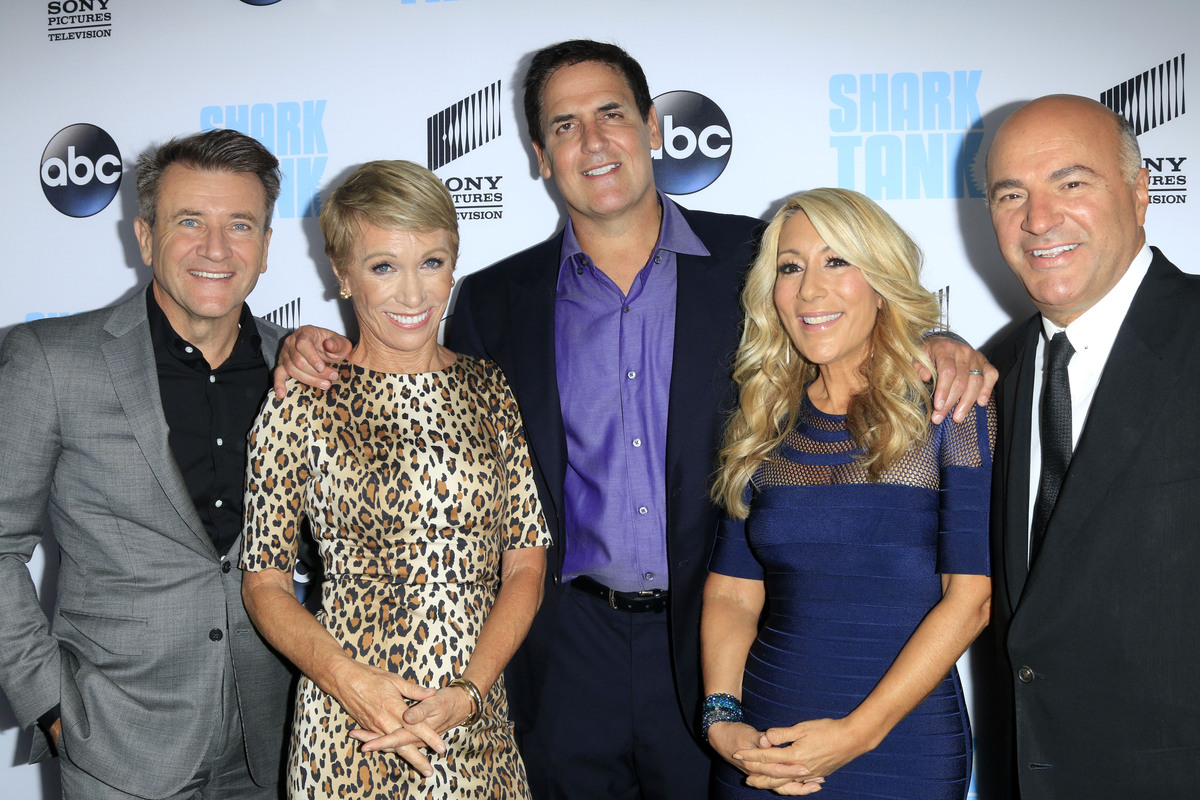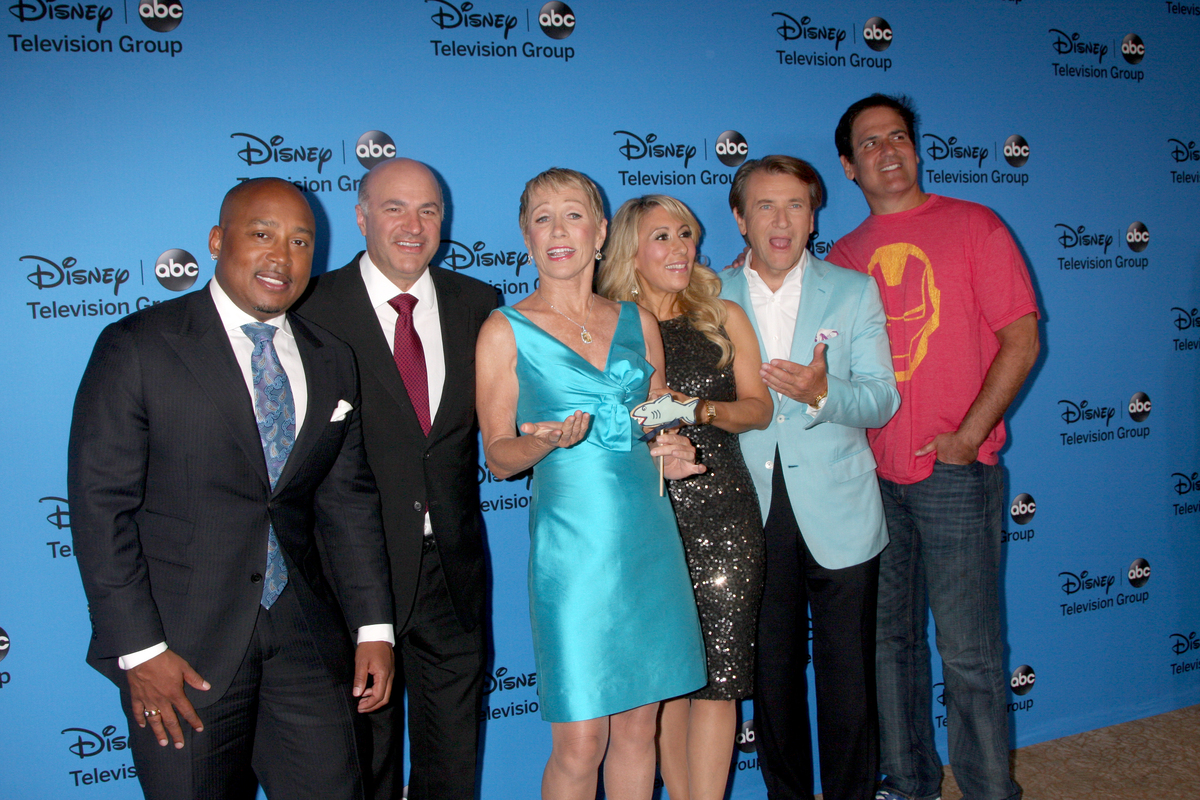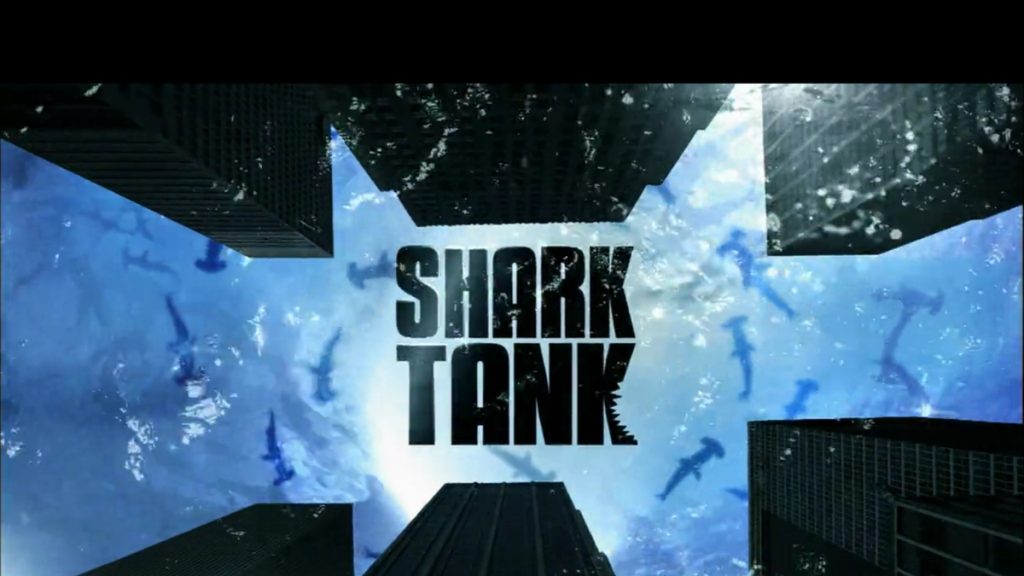- On Shark Tank, all pitches are allowed to last for more than an hour, but they get edited to 10 minutes.
- There are 14 seasons of Shark Tank to date, with a 15th one in the works. The first-ever episode of Shark Tank aired on August 9th, 2009.
- Scrub Daddy is one of the Tank’s superstars that are loved by thousands of people in the U.S.
- The Sharks passed out on a billion-dollar deal that Amazon swooped later on.
- The best Shark Tank episodes include entries from all seasons, but mostly from seasons 4 and 5.
In its 14 seasons of airing, starting way back in 2009, Shark Tank has hosted an array of creative business ideas that swoop the sharks off their seats. This entrepreneur-focused TV show delivered some awe-inspiring moments for us viewers, and some of the episodes simply stuck with us long after airing.
Whether you’re a die-hard Shark Tank fan or an occasional viewer, one thing is for sure: the show is a massive hit that’s discovered some exceptional talent among entrepreneurs. We have made a list of the best episodes of Shark Tank that are worth watching. Who knows, some of them might inspire you to be the next success story on the show.

-
Contents
- Season 10, Episode 18
- Season 1, Episode 1
- Season 5, Episode 9
- Season 5, Episode 7
- Season 4, Episode 6
- Season 4, Episode 7
- Season 3, Episode 7
- Season 6, Episode 1
- Season 5, Episode 2
- Season 9, Episode 12
- Season 14, Episode 3
- Season 3, Episode 2
- Season 5, Episode 6
- Season 2, Episode 3
- Season 12, Episode 25
- Season 3, Episode 3
- Season 11, Episode 1
- Season 4, Episode 8
- Season 3, Episode 6
- Season 5, Episode 20
- Season 10, Episode 23
- Season 8, Episode 13
- Season 7, Episode 5
- Season 13, Episode 3
- Season 8, Episode 2
- Season 6, Episode 9
- Season 10, Episode 2
- The Final Say
Season 10, Episode 18
Get ready to be motivated by some inspiring stories of entrepreneurial success! In an episode of Shark Tank, the Kanga product was a game-changing invention that used the technology of beverage koozies to insulate entire coolers. The sharks were blown away and Mark Cuban was so excited that he immediately closed a deal with the entrepreneurs.
The episode also featured another inspiring company, CertifiKID, known as one of the best deal websites for parents. Jamie and Brian Ratner pitched their company to the sharks and eventually agreed to give up 19% equity to Kevin O’Leary.
Tiffany Krumins, who was one of the show’s very first success stories, appeared on Shark Tank season 1. As a mom trying to solve the problem of how to get her kids to take their medicine, Krumins invented an ingenious elephant-shaped medicine dispenser. While the dispenser wasn’t patented yet, that didn’t stop Barbara Corcoran from making a deal with Krumins on the spot during the episode, giving her $50,000 for 50% of the company.
Today, AVA the Elephant can be found in more than 10 countries and over 10,000 retail stores, including major chains like Walgreens and CVS. Overall, this first episode is now considered one of Shark Tank best episodes – for a good reason too!
This episode features four businesses that faced the fierce Sharks but ultimately failed to land a deal. First up was Jamie Siminoff, the mastermind behind DoorBot, a security app that uses facial recognition to keep unwanted visitors out of your home.
Jamie approached the Sharks for a $700,000 loan in exchange for a 10% equity and 3% equity. However, the negotiations didn’t go as well as Jamie had hoped, so neither party was willing to compromise, resulting in a no-deal for DoorBot.
In a surprise twist, the DoorBot transformed into a huge win, leaving the Sharks high and dry, passing out on a massive profit opportunity. In fact, this particular deal went down as the greatest miss in Shark Tank history! Further down the road, Amazon acquired the DoorBot
(for a whopping $1.2 to $1.8 billion!), rebranding it as the Ring.
Humble farmer Johnny Georges won America over with his Tree-T-Pee on Shark Tank. While presenting his water containment system for agricultural farming, Georges stood his ground when the sharks suggested he raise his prices to increase revenue.
Georges made it clear that his product wasn’t about the money. In fact, he only made a dollar per Tree-T-Pee, and that was enough for him. There wasn’t a dry eye in the room, and special guest Shark and self-made billionaire investor John Paul DeJoria jumped on board, investing $150,000 for a 20% stake.
The 6th episode of Season 4 was the debut of cousins Jim Tselikis and Sabin Lomac, pitching the idea of a different kind of food truck. The episode is also well-known as the “Cousins Maine Lobster episode”, and it easily went down in Shark Tank history as one of the most notable episodes.
Even after losing interest from four of the sharks, the cousins managed to secure a deal with Corcoran by offering 15% of their company for $55,000.
The other Sharks missed out on a golden opportunity, as Corcoran and her expertise proved to be instrumental in helping the business grow. Today, Cousins Maine Lobster is an international food franchise that rakes in nearly $30 million in annual sales.
Meet Aaron Krause, the genius behind Scrub Daddy. This smiley-faced sponge scrubber, which has now become a staple in every home across America, changes texture depending on the temperature of water you use it with. (So cool, right?)
The sharks immediately saw the potential of this invention and started making offers left and right. After some intense negotiations, Aaron agreed to an offer of $200,000 for 20% equity by none other than the “Queen of QVC” herself, Lori Greiner. (Sold!)
Fast forward to today, and Scrub Daddy remains one of Lori’s best deals, generating a whopping $100 million in sales. (That’s a lot of clean dishes!) The episode is widely known as the Shark Tank Scrub Daddy episode, but another product secured funding as well.
Next up were Daniel Wood and David Martschinske, pitching the SBU – a self-balancing electric unicycle. The SBU leans one way when you do, preventing crashes and making it more accessible for beginners.
The sharks initially had some concerns about the practicality of the SBU, but Daniel and David pointed out that selling just 1,000 units a year at $1800 each would generate over $1 million in profits. (Not too shabby!)
In season three of Shark Tank, Dallas Robinson and Mike Buonomo pitched their unique double-sided lip balm, Kisstixx, seeking $200,000 for a 20% equity stake. The episode certainly made a lasting impression, complete with a demo kiss from Barbara Corcoran and Kevin O’Leary.
However, it was Mark Cuban who saw the potential in the brand, offering to invest $200,000 for a 40% stake in the company. It’s clear that Cuban’s investment paid off, as Kisstixx is now a global sensation, available in thirty countries and even sold on QVC!
With its captivating concept, memorable Shark Tank appearance, and continued success, Kisstixx has certainly cemented a place in the world of cosmetics and proves just how impactful a pitch on Shark Tank can be.
Get ready to be inspired by one of the best deals to ever happen on Shark Tank! In season 6, Daymond John hit a home run by partnering with David Heath and Randy Goldberg of Bombas, an athletic sock company that had a unique vision.
With his impressive background in growing FUBU, another clothing brand, Daymond was the perfect partner to help take Bombas to the next level. Fast-forward to now, and Bombas sees over $150 million in annual sales, with the company on track to become a billion-dollar brand!
As if that wasn’t enough, Bombas has donated over 40 million pairs of socks to homeless individuals in need. This Shark Tank deal has not only revolutionized the sock world but made a true difference in the lives of those less fortunate. And that, in our opinion, is the best kind of success there is.
In season 5, a certain Charles Yim amazed the Sharks with his unique, never-before-seen innovation the Breathometer, a carryable breathalyzer that plugs into smartphones.
The Sharks were so impressed by Charles’ pitch that all of them offered to invest! Ultimately, Charles collected a joint investment of a mind-shattering $1 million from all of the Sharks. The ingenuity of Charles’ invention made it possible for him to offer 30% of the profits to the Sharks. Talk about a game-changing deal!
But Charles Yim wasn’t content to rest on his laurels. He used the exposure from Shark Tank to raise an additional $2 million in funding and even partnered with the prestigious Cleveland Clinic. However, the product proved unreliable, and was quickly shut down by the FTC. It is now one of the most controversial products and is regularly referred to as one of the worst deals on Shark Tank!
Prepare to feel cozy with the story of The Comfy, a product that truly lives up to its name – it’s a “blanket you wear!” This snuggly invention first caught the attention of Barbara Corcoran when it debuted on season 9, episode 12 of Shark Tank. She offered brothers Brian and Michael Speciale a sweet deal of $50,000 for a 30% stake in the company.
Fast forward just three years later and The Comfy is a bona fide success story, with a whopping $150 million in sales (as reported by Biz Newske). It’s no secret why – The Comfy combines the best of both worlds, offering the coziness of a blanket with the convenience of wearable clothing. Plus, with winter in a few months, it’s a product that is sure to fly off the shelves.
It’s heartening to see that even in this day and age of high-tech gadgets and endless apps, something as simple and delightful as The Comfy can capture our collective imaginations. So next time you’re feeling chilly, consider wrapping yourself up in The Comfy and enjoying its warmth and comfort – and maybe dreaming up your own winning invention to bring to Shark Tank someday!

Lori Greiner, Daymond John, Mark Cuban, Kevin O’Leary, and guest shark Kendra Scott were the Sharks in episode 3 which aired towards the end of last year in the Shark Tank new episodes everyone’s excited about.
The Sharks made deals with two companies — Stakt and Create A Castle. The remaining two, Mama O’s Premium Kimchi and Halloween Moments, didn’t get any offers from the investors on the show.
After some negotiations, Lori and the Stakt founders were able to strike a deal: $100,000 for 15% of the company, plus an extra sweetener of $0.75 royalty per unit sold until $100K is paid.
It’s clear that Lori saw something special in Stakt and its founders, and she wasn’t wrong. With this investment, Stakt was able to take its business to new heights and make a name for itself in the crowded startup world. And with Lori’s expertise and guidance, who knows what great things they’ll achieve in the future?
Get ready for a tale of surprising success from the Shark Tank boardroom! In a particularly challenging episode of the show, only one entrepreneur managed to make their way to a deal – and it wasn’t the one anyone was expecting.
The hero of this story is Steve Gadlin, who pitched his unconventional business idea, I Want to Draw a Cat For You, to the sharks. Despite the unusual concept, Mark Cuban was intrigued by Gadlin’s persuasive pitch and saw the potential in this quirky venture.
But at its heart, I Want to Draw a Cat For You remains true to its core – providing personalized portraits that have won the hearts of animal lovers everywhere. It just goes to show that a truly unique idea with passion behind it can take off and succeed – even in a tough, competitive world like Shark Tank.
In episode six of season five, Melissa Carbone manages to get $2 million from Mark Cuban in exchange for a 20% stake in her company, making it one of the best Shark Tank episodes with the biggest Shark Tank deal in the show’s history (so far at least).
Carbone owns Ten Thirty One Productions, a company specializing in live horror attractions based in the LA area. Sharks initially are weary of her $2 million request for 10%, but become much more interested when she explains that Ten Thirty One Productions brought in $1.8 million in revenue from their October haunted hayride, resulting in $600,000 in profit.
Thanks to Cuban’s investment, Carbone has now expanded Ten Thirty One Productions across the country. Cuban also helped Carbone secure a ticketing distribution contract with Live Nation, and Ten Thirty One Productions expects to make $3 million this year in sales. Nothing spooky about that!
Season 2 episode 3 welcomed two entrepreneurs who tried their luck on Shark Tank. First up is Fitness Stride, a business founded by Stacy Erwin.
Erwin’s ingenuity helped him create a simple yet clever invention – athletic bands that turn even the simplest of activities into a workout. When Erwin pitches his creation, the Sharks were in awe and couldn’t wait to test the product themselves. Erwin went on to ask for a business loan of $140,000, while willing to offer a 15% stake in his company. However, due to the underperforming marketing and customer feedback, the Sharks weren’t eager to invest.
However, when Mod Mom entered the scene, things took a nice turn for the idea-pitcher. Kiersten Hatchcock appeared on Shark Tank asking for a loan of $90,000 in exchange for 25% equity in her hand-made kids’ furniture business. One of the Sharks was especially intrigued by this stay-at-home mom’s idea and was willing to offer a deal.
Robert Herjavec matched the sought loan but asked for a 33% equity and royalty after half a million in sales. Mod Mom founder accepted, and the rest is Shark Tank history.
When Debbie Wei Mullin came face to face with the Sharks, her entrepreneurial spirit took over, and confidently asked the Sharks for a $600,000 loan, in exchange for a 4% equity in her company, Copper Cow Coffee. Debbie decided to keep most of her company to herself because it wasn’t a startup, and had done all the leg work herself.
She had already been doing business with major department stores and high-end retailers, like Williams-Sonoma.
Copper Cow Coffee is a line of Vietnamese coffees that are sustainably sourced, and come as single pour-over coffee packets. Throughout her business adventure, Debbie expanded the line with more coffee flavors and even experimented with some teas.
However, only one of the Sharks came through and matched what Debbie asked for. Robert Herjavec offered the full $600,000 but asked for 5.5% of her company. Today, Copper Cow Coffee is available in more than 3,000 grocery stores, including Whole Foods, Walmart, and Sprouts. In terms of profits, the annual revenue stands at around $3 million, which is not so shabby.
In the third episode of season 3, we witnessed some pretty quirky inventions. First off, there is Travis Perry, the mastermind behind Chord Buddy, a product that can turn anyone into a guitar player in just two months.
Travis pitched Chord Buddy an acoustic and electric guitar-compatible gadget with its own resources to help learners become guitar heroes. The pitch was so inspiring that the Sharks even partook in a demo. Ultimately, Robert Herjavec was the single Shark to invest $175,000 for a 20% stake in Travis’ company.
Next up was a super funky invention that didn’t smell like a million-dollar deal to the Sharks. Pat McCarthy, the founder of Liquid Money, failed to attract the Sharks to his invention – a fragrance made with the same ingredients they use to make money! Could we blame the Sharks for passing out on this opportunity? Only time will tell.
Season 11 brought us Blueland, nontoxic cleaning solutions packed in reusable glass packets. Undoubtedly, Blueland is at the top most successful Shark Tank pitches that grossed $15 million in sales.
Sarah Paiji Yoo and Syed Naqvi are the founders of Blueland who motivated one of the Sharks, Kevin O’Leary, to invest $270,000 for 3% equity in Blueland. Today, Blueland is still going strong, making profits, and doing its fair share to reduce single-use plastic consumption.
-
Season 4, Episode 8
In this episode, Michael Tseng pitches his product, the Plate Topper, to the sharks. The Shark Tank Plate Toppers are plastic storage containers with a suction feature that sticks to plates for easier food leftover storage.
Tseng launches a bidding war between the sharks, spending a record-breaking two hours on set negotiating with investors. Although his deal with Lori Greiner falls through, the Plate Topper Shark Tank discovery became a huge success. You can now find the product in many Walmart locations and on Walmart.com.
Next up, we have Rick Hopper, the inventor of ReadeRest. Rick pitched his idea to the Sharks, describing his product as a breakthrough item, a magnetic clip, that keeps a person’s glasses in place.
During his pitch, Rick fakes a fall to demonstrate the usefulness of his invention, adding some clever drama to the pitch. Lori Greiner was the first to bite, offering $150,000 for a 65% stake in the company. She predicted that ReadeRest will be a QVC sensation and promised to make Rick millions.
As it turns out, Greiner’s prediction was right – ReadeRest has become a huge success on QVC, selling out every time it’s offered. Hopper has since made an impressive $8 million in sales since appearing on the show.
This season brought us some amazing kidpreneurs, brilliantly witty and adorable kid entrepreneurs that melted the Sharks’ rough exteriors. In this episode of Shark Tank, several innovative inventions are showcased, including Boo Boo Goo (a paint-on band-aid), iReTron (a service for trading in used electronics), and Henry’s Humdingers (a company that sells spiced honey).
Another standout invention in this episode is Define Bottle, an eco-friendly water bottle that enables users to infuse their drinks with fruit and herbs for a tastier hydration experience.
Watching these young entrepreneurs pitch their ideas makes this episode a must-see for Shark Tank fans and anyone interested in cutting-edge innovation.
-
Season 10, Episode 23
Season 10 of Shark Tank welcomed Chris Rannefors and Harrison Broadhurst, pitching their innovative idea, BatBnB. In essence, BatBnB is designed as a safe home for bats whose natural habitat has been declining due to human interference.
Kevin O’Leary was drawn to the environmentally-conscious business idea and offered the $100K investment Chris and Harrison were seeking. However, the Shark wanted a bigger cut of the profits, asking for 33.3%, instead of the initial 16% offered by the founders.
Despite initial hesitation, the duo ultimately agreed to the deal. Since appearing on Shark Tank, BatBnB has expanded its reach globally, with a presence in over a dozen countries. Rannefors and Broadhurst have received numerous awards and accolades for their innovative concept.
LaTangela Newsome appeared on Shark Tank with her innovative invention, Grease Bags. These eco-friendly bags are designed to absorb grease using a special oil blend, providing a safe and sustainable alternative to traditional grease disposal methods. Barbara Corcoran was impressed by the idea and offered Newsome a $75,000 investment in exchange for 50% of the company.
Meanwhile, Season 8 of Shark Tank also featured an innovative new toy company called Pinblock. Unlike traditional toy bricks, Pinblock pieces are all the same shape and can be pivoted to build anything a child can imagine.
After some consideration, founder Vladislav Smolyanskyy secured a $100,000 investment from Kevin O’Leary in exchange for 50% equity in the company. Pinblock’s unique and inventive approach to building created a buzz among the sharks and audiences alike.
The makers of the X PlusOne drone, JD Claridge and Charles Manning of xCraft, pitched their business on Shark Tank. Despite a crowded market, the sharks were impressed with their drone’s capabilities, leading to a legendary bidding war between Kevin, Daymond, and Lori. Robert ultimately proposed that the Sharks team up, resulting in a $1.5 million investment for 25% of the company.
In addition, we saw a delicious pitch made by the founders of Three Jerks Jerky, entrepreneurs Daniel Fogelson and Jordan Barrocas. They asked the Sharks for a $100,000 loan in exchange for a 15% equity. Daymond John matched with $100,000 for 15% equity.
Dwayne Walker and Tim Samuel introduced their online art education platform for kids and teens, Sparketh, on Shark Tank. The duo received an offer from Barbara Corcoran and Daniel Lubetzky for $100,000 in exchange for 20% equity contingent upon profitability after six months.
The two entrepreneurs happily agreed to the deal and left the tank one step closer to making Sparketh a household name in the world of online art education. It’s safe to say that Mrs. Circoran knows a breakthrough business idea when she sees one!
Have you heard of stick-on lapels? Well, the Sharks hadn’t either, not until Season 8 when Sebastian Garcia and Raul Bernal pitched their revolutionary idea for men’s dress wear to the panel of Sharks – the Lapel Project.
Their stick-on lapels offer an affordable way for men to enhance their wardrobe without breaking the bank. The unique concept piqued Mark Cuban’s interest, leading to an offer of $150,000 in exchange for 30% equity in the company. Garcia and Bernal accepted the offer and left the tank with a promising investment.
Besides the catchy name, the Squatty Potty impressed the Sharks during the ninth episode of Season 6. Bobby Edwards’ pitch, the founder of the Squatty Potty, impressed the Sharks with his ingenuity.
The unique footstool helps toddlers climb onto and sit comfortably on a regular toilet. Lori invested $350,000 for a 10% stake in the company, highlighting the product’s potential. As of 2022, Squatty Potty is worth over $50 million, according to Insider Growth.
Have you ever seen a dog wearing a onesie? You have?! Are you sure? Well, you must be thinking about the Shed Defender, a superstar product debuting in Season 10 of Shark Tank. The Sharks were all ears to hear how a dog in a onesie can be a nice selling point. But, thanks to the presentation of entrepreneurs Tyson Walters and Miles Walters, the Sharks understood the assignment.
The motivated founders asked for an investment of $250,000, offering 10% equity in their company, in return. Lori Greiner was the Shark that saw the products potential and jumped in, offering all of the money for a 25% stake.
The Final Say

From receiving a few nays and double the yays, Shark Tank has seen some amazing talent, and that’s the undeniable truth. With the occasional guest stars on the show, Mark Cuban, Barbara Corcoran, Daymond John, Kevin O’Leary, Lori Greiner, and Robert Herjavec, are the Tank’s staple.
Sometimes all of them, and sometimes only one, the Sharks could spot a lucrative business idea, but that wasn’t always the case. For one, the Sharks failed to predict the massive hit that was the DoorBot. While all of the Sharks passed out on the opportunity for massive profits, Amazon saved the day for Jamie Siminoff, the inventor of DoorBot, and acquired his company for a whopping $2 billion!
However, on the flip side, the Sharks made amends with other brilliant ideas like the Scrub Daddy, the Plate Toppers, the BatBnB, the Lapel Project, the AVA Elephant, and many more. With season 14 still airing, and another one in the works, we can’t wait to see more lightbulbs light up with brilliant inventions.


